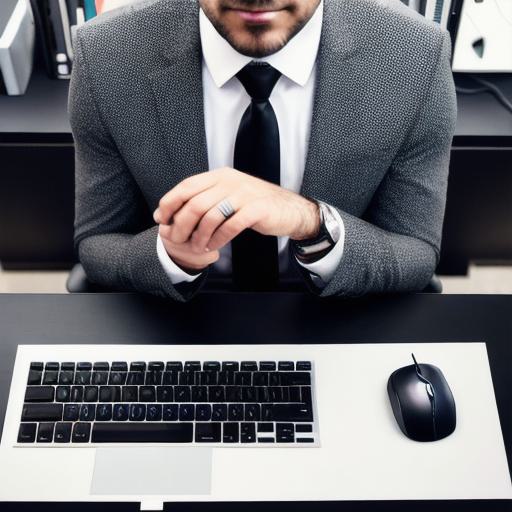Introduction:
In today’s world, game development is a thriving industry, and with it comes a multitude of options for developers to choose from when creating their games. One of the most popular choices for game development is the use of PCs, but is this really the best option? In this article, we will explore the pros and cons of using a PC for game development and provide you with a comprehensive analysis of whether or not it’s the best choice for your needs.

Pros of Using a PC for Game Development:
- High-Performance Gaming: PCs are known for their high-performance gaming capabilities, which makes them an excellent choice for game developers who require powerful hardware to create immersive and visually stunning games.
- Flexibility: PCs offer a great deal of flexibility when it comes to game development, allowing developers to use a variety of software and tools to create their games. This makes it easy to switch between different development environments and platforms.
- Large Community: The gaming community on PC is vast and diverse, with millions of players from all over the world. This means that there are plenty of resources available for game developers, including forums, tutorials, and support groups.
- Cost-Effective: PCs are generally less expensive than other gaming platforms, making them a cost-effective option for game development.
Cons of Using a PC for Game Development:
- Limited Reach: While PCs have a large and diverse community, they still represent a smaller portion of the overall gaming market. This means that your games may not reach as many players if you only develop for PC.
- Compatibility Issues: PCs can be notorious for compatibility issues, which can make it difficult to ensure that your games work properly on all different types of hardware.
- Development Time: Developing games for PC can take longer than developing games for other platforms due to the complexity of the software and tools required.
- Limited Graphics Capabilities: While PCs are known for their high-performance gaming capabilities, they still have limited graphics capabilities compared to other gaming platforms. This means that your games may not be able to achieve the same level of visual fidelity as they would on other platforms.
Case Studies:
One of the best ways to understand whether or not a PC is the best option for game development is to look at real-life examples. Here are two case studies that illustrate the pros and cons of using a PC for game development:
Pros:
- Uncharted 4: Developed by Naughty Dog, Uncharted 4 is one of the most highly regarded games of all time. It was developed exclusively for PlayStation 4, but its creators chose to also develop a PC version due to the large and diverse gaming community on PC. The PC version of the game received critical acclaim and was praised for its high-performance graphics and smooth gameplay.
- Cons:
- Minecraft: Minecraft is one of the most popular games in the world, with millions of players across multiple platforms. However, the PC version of the game has been plagued by compatibility issues and bugs since its release. This has led to frustration for many players and has limited the reach of the game on PC.
Comparisons:
When it comes to choosing between a PC and other gaming platforms, there are several factors to consider. Here are some comparisons that can help you make an informed decision:
- Performance: In terms of performance, PCs are generally considered to be the best option due to their high-performance hardware and flexibility. However, other platforms like consoles and mobile devices may offer more consistent performance in certain games.
- Reach: If you want to reach as many players as possible, then developing for multiple platforms (such as PC, console, and mobile) may be the best option. However, if you want to focus on a specific platform, then choosing that platform exclusively may be better.
- Development Time: Developing games for PC can take longer due to the complexity of the software and tools required. This means that you may need to invest more time and resources into developing your game for PC compared to other platforms.
- Cost: PCs are generally less expensive than other gaming platforms, making them a cost-effective option for game development. However, if you need high-performance hardware specifically designed for gaming, then the cost of a PC may be comparable or even higher than other platforms.
FAQs:
- Is it better to develop games for PC or console? It really depends on your specific needs and goals as a game developer. If you want to reach as many players as possible, then developing for multiple platforms (such as PC, console, and mobile) may be the best option. However, if you want to focus on a specific platform, then choosing that platform exclusively may be better.
- What are the biggest challenges of developing games for PC? The biggest challenges of developing games for PC include compatibility issues, development time, and the need for high-performance hardware.
- Is it worth investing in a high-end gaming PC for game development? It depends on your specific needs and goals as a game developer. If you require high-performance hardware specifically designed for gaming, then investing in a high-end gaming PC may be worth it. However, if you can achieve the same level of performance with less expensive hardware, then it may not be necessary.
- What resources are available for game developers on PC? There are plenty of resources available for game developers on PC, including forums, tutorials, and support groups. Additionally, many game engines (such as Unity and Unreal Engine) offer dedicated support and resources for PC development.
Conclusion:
In conclusion, whether or not a PC is the best option for game development depends on your specific needs and goals as a developer. While PCs offer high-performance gaming capabilities, flexibility, and a large community, they also come with limitations such as compatibility issues and limited graphics capabilities compared to other platforms. Ultimately, it’s up to you to weigh the pros and cons and make an informed decision about whether or not a PC is the best option for your game development needs.
